
Peter John Ucko FRAI FSA was an influential English archaeologist. He served as Director of the Institute of Archaeology at University College London (UCL), and was a Fellow of both the Royal Anthropological Institute and the Society of Antiquaries. A controversial and divisive figure within archaeology, his life's work focused on eroding western dominance by broadening archaeological participation to developing countries and indigenous communities.

Helen Beatrice Joseph was a South African anti-apartheid activist. Born in Sussex, England, Helen graduated with a degree in English from the University of London in 1927 and then departed for India, where she taught for three years at Mahbubia School for girls in Hyderabad. In about 1930 she left India for England via South Africa. However, she settled in Durban, where she met and married a dentist, Billie Joseph, whom she later divorced.

Country of My Skull is a 1998 nonfiction book by Antjie Krog about the South African Truth and Reconciliation Commission (TRC). It is based on Krog's experience as a radio reporter, covering the Commission from 1996 to 1998 for the South African Broadcasting Corporation. The book explores the successes and failures of the Commission, the effects of the proceedings on her personally, and the possibility of genuine reconciliation in post-Apartheid South Africa.
Radio Freedom also called Radio Zambia was a South African radio arm of the African National Congress (ANC) and its fighting wing Umkhonto we Sizwe (MK) during the anti-Apartheid struggle from the 1970s through the 1990s. It was the oldest liberation radio station in Africa. Listening to Radio Freedom in Apartheid-era South Africa was a crime carrying a penalty of up to eight years in prison.
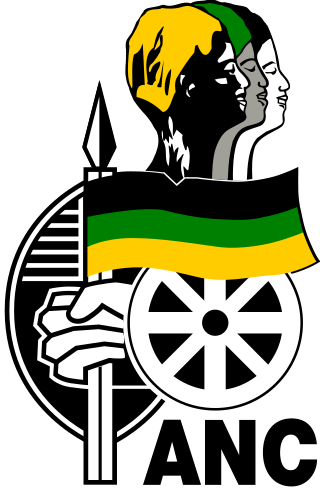
The African National Congress Women's League (ANCWL) is an auxiliary women's political organization of the African National Congress (ANC) of South Africa. This organization has its precedent in the Bantu Women's League, and it oscillated from being the Women's Section to the Women's League from its founding, through the exile years, and in a post-apartheid South Africa. After women were allowed to become members of the ANC in 1943, the ANCWL was created as the means by which Black South African women could contribute to the national liberation struggle by channeling Black women's political activity into the ANC by way of the ANCWL.
Sathiseelan Gurilingam "Ronnie" Govender was a South African playwright, theatre director and activist known for his community theatre efforts. He was known as a pioneer of Indian South African theatre in the country. Some of his notable works included Black Chin White Chin, Song of the Atman, and At the Edge and Other Cato Manor Stories. At the Edge won the 1997 Commonwealth Writers' Prize for best first book, Africa.
Ros de Lanerolle, also known as Rosalynde Ainslie, was a South African activist, journalist and publisher. Having settled in Britain in the 1950s, she campaigned actively against apartheid, and later became a pioneering figure in women's publishing in the UK, called by Florence Howe "the doyenne of feminist publishers".
In the Fog of the Seasons' End is a 1972 novel by South African novelist Alex La Guma. Like many of La Guma's other novels, it is focused on challenging the social systems of apartheid in South Africa. The main character in the novel, Beukes, is an organizer of an anti-apartheid underground. The novel was dedicated to Basil February and other resistance fighters who died in Zimbabwe in 1967. The novel has been extensively explored as part of marxist literary criticism, while reflecting on La Guma's marxist political philosophy.
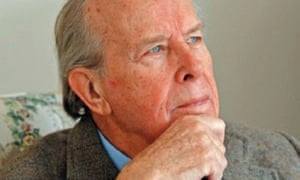
James Randolph Vigne FSA was a South African anti-apartheid activist. He was an influential member of the Liberal Party of South Africa, a founding member of the National Committee for Liberation, and the founder of the African Resistance Movement (ARM).
Kirsten E. Shepherd-Barr is an academic specialising in Victorian and modern English literature, the interaction between science and literature, and theatre studies, especially science in theatre. In 2015, she was appointed a Professor of English and Theatre Studies at the University of Oxford.

Khabzela: The Life And Times Of A South African is a bestselling 2005 biography written by South African author Liz McGregor about South African disc jockey Fana Khaba, who died from AIDS.

Agnes Winifred Hoernlé née Tucker was a South African anthropologist, widely recognized as the "mother of social anthropology in South Africa". Beyond her scientific work, she is remembered for her social activism and staunch disapproval of Apartheid based on white supremacy. Born in 1885 in the Cape Colony, as an infant she moved with her family to Johannesburg, where she completed her secondary education. After earning an undergraduate degree in 1906 from South African College, she studied abroad at Newnham College, Cambridge, Leipzig University, the University of Bonn, and the Sorbonne. Returning to South Africa in 1912, she undertook anthropological research among the Khoekhoe people, until she married in 1914.
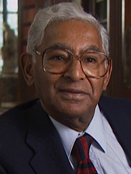
Vella Pillay was a South African international economist and a founding member of the British Anti-Apartheid Movement. He was a member of the South African Communist Party and coordinated the party's overseas activities from London when it was banned by the South African government. As a chairman of the editorial committee of Anti-Apartheid News, he wrote extensively on the South African economy under the apartheid regime.
Schreiner Baduza was a South African activist who organized squatting actions in the Alexandra township in the City of Johannesburg Metropolitan Municipality. He was forcibly relocated away from Alexandra and when he returned became a church minister.
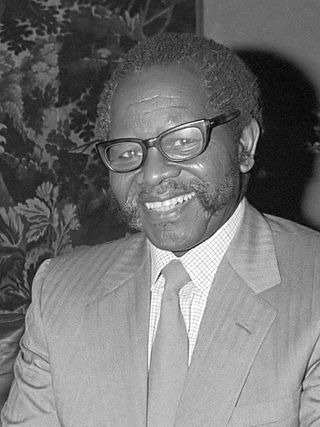
Operation Vula was a secret domestic programme of the African National Congress (ANC) during the final years of apartheid in South Africa. Initiated in 1986 at the ANC headquarters in Lusaka and launched in South Africa in 1988, its operatives infiltrated weapons and banned ANC leaders into the country, in order to establish an underground network linking domestic activist structures with the ANC in exile. It was responsible for facilitating the only direct line of communication between ANC headquarters and Nelson Mandela, who at the time was imprisoned and was discussing a negotiated settlement with the government on the ANC's behalf. The operation was disbanded in 1990, after its existence had been publicly revealed and eight of its leaders charged under the Internal Security Act with terrorism and plotting an armed insurrection.
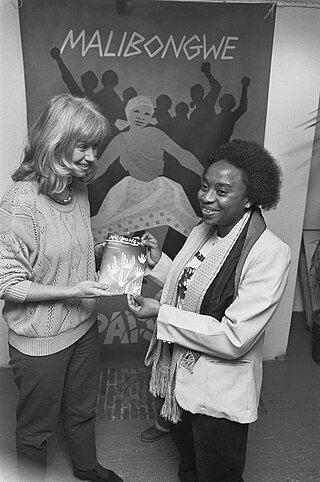
Mavivi Myakayaka-Manzini, also known as Mavivi Manzini, is a South African politician and diplomat who is currently the South African High Commissioner to Malawi. She was a member of the National Executive Committee of the African National Congress (ANC) between 1994 and 2007 and she was deputy president of the ANC Women's League between 2003 and 2008. During apartheid, she worked in exile in the secretariat of the ANC's women's section; in the 2000s, after one term in the national Parliament (1994–1999), she headed the ANC's international relations desk.
The South African Students' Movement (SASM) was an anti-apartheid political organisation of South African school students, best known for its role in the 1976 Soweto uprising. By 1976 it was strongly identified with the Black Consciousness Movement. It was banned by the apartheid government in October 1977 as part of the repressive state response to the uprising.
The SASO/BPC trial, also known as the Black Consciousness trial, was an apartheid-era legal trial in South Africa which resulted in the conviction of nine Black Consciousness activists from the South African Students' Organisation (SASO) and Black People's Convention (BPC). The trial ran from 31 January 1975 to 21 December 1976 in the Pretoria Supreme Court.
Jeffrey Brian Peires is a South African historian at the University of Fort Hare. His book about the Xhosa cattle-killing movement of 1856–57, The Dead Will Arise, won the Alan Paton Award in 1990. Peires has also worked as a civil servant in the Eastern Cape and represented the African National Congress in the National Assembly for a brief period from 1994.
Deborah Posel is a South African sociologist who is professor emeritus at the University of Cape Town (UCT). She was the founding director of two prominent interdisciplinary research institutes, UCT's Institute for Humanities in Africa and the Wits Institute for Social and Economic Research. Her academic interests are primarily in the historical sociology of apartheid and the sociology of post-apartheid South Africa.










